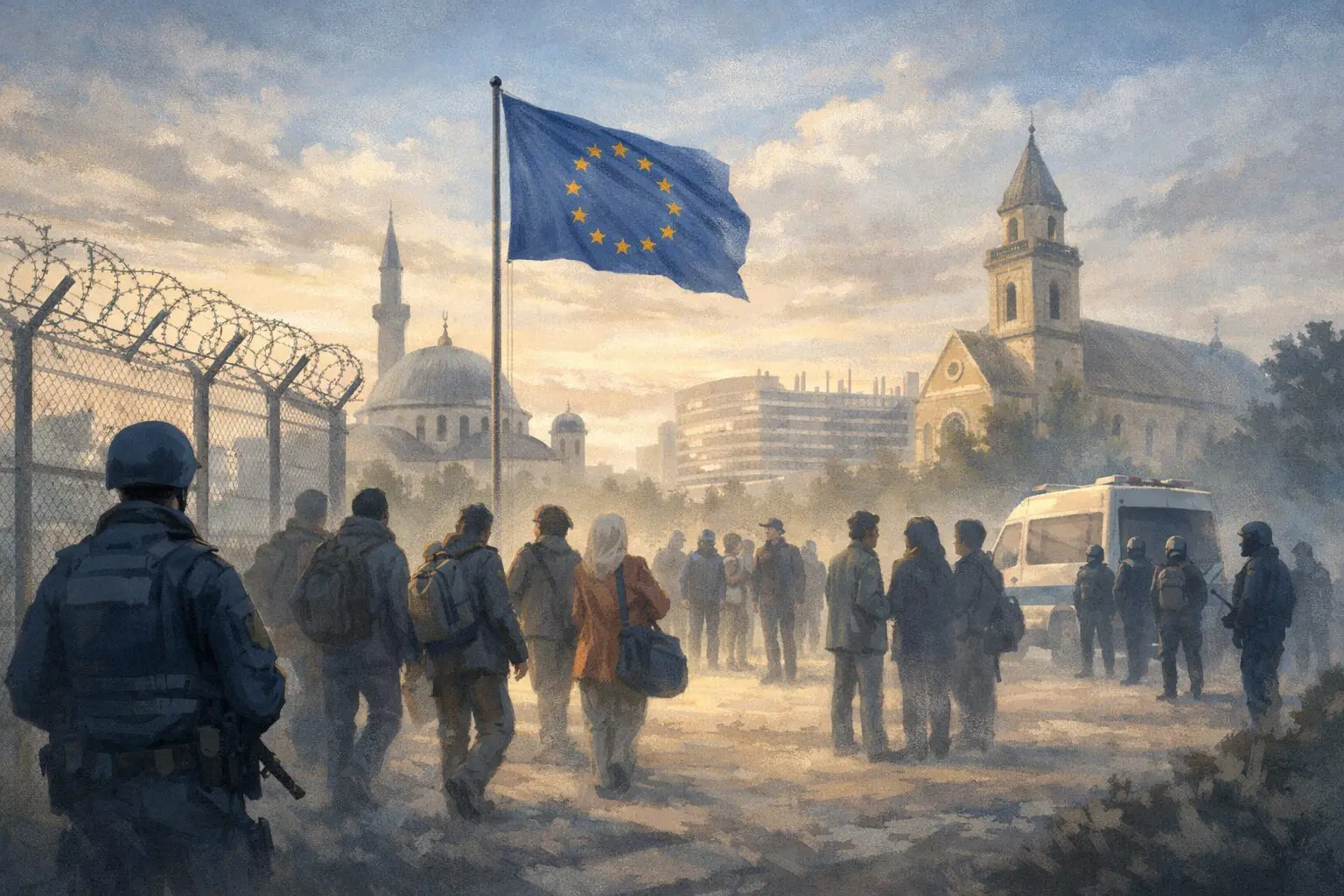Delivering his latest update, IAEA Director General Rafael Mariano Grossi reported that the situation at the Zaporizhzhya Nuclear Power Plant (ZNPP) – the largest in Europe – remains extremely fragile and dangerous.
Military operations continue in the region “and may well increase very considerably in the near future,” he warned.
Rolling the dice
The Zaporizhzhya plant has come under fire during the war. It has lost off-site power seven times and had to rely on emergency diesel generators – “the last line of defence against a nuclear accident,” he said.
“We are fortunate that a nuclear accident has not yet happened,” Mr. Grossi told ambassadors.
“As I said at the IAEA Board of Governors last March – we are rolling a dice and if this continues then one day, our luck will run out. So, we must all do everything in our power to minimize the chance that it does.”
Rafael Mariano Grossi, Director General of the International Atomic Energy Agency (IAEA), briefs members of the UN Security Council on protecting the Zaporizhzhia nuclear power plant in Ukraine.
A specific request
Mr. Grossi recalled that the Ukraine crisis marks the first time in history that a war is being fought amid the facilities of a major nuclear power programme. He said several of the country’s five nuclear plants and other facilities have come under direct shelling, and all nuclear plants have lost off-site power at some point.
The IAEA has maintained a presence at the Zaporizhzhya Nuclear Power Plant since September. The site was occupied by Russian forces in the early days of the conflict, with a “significantly reduced” Ukrainian staff carrying out operations.
Throughout the conflict, the IAEA chief has repeatedly promoted seven indispensable pillars for nuclear safety and security, which include maintaining the physical integrity of facilities and ensuring secure off-site power supply.
“The time has come to be more specific as to what is required. We must prevent a dangerous release of radioactive material,” he said.
Five concrete principles
Following extensive consultations, including with the sides, Mr. Grossi developed five concrete principles essential for averting “a catastrophic incident” at the Zaporizhzhya plant.
“There should be no attack of any kind from or against the plant, in particular targeting the reactors, spent fuel storage, other critical infrastructure, or personnel,” he said, outlining the first point.
The nuclear plant also should not be used as storage or a base for heavy weapons, such as multiple rocket launchers, or military personnel that could be used for an attack emanating from it.
Off-site power to the plant should not be put at risk, and all efforts should be made to ensure it always remains available and secure, he said.
Furthermore, all structures, systems and components essential to the safe and secure operation of the plant should be protected from attacks or sabotage. Finally, no action should be taken that undermines the principles.
“Let me say something very clearly: These principles are to no one’s detriment and to everyone’s benefit. Avoiding a nuclear accident is possible. Abiding by the IAEA’s five principles is the way to start,” said Mr. Grossi.
Principles are aligned: Russia
Russian Ambassador Vasily Nebenzya said his country has made every effort to prevent threats to the safety of the Zaporizhzhya plant, which he attributed to Ukraine and its “Western backers”.
“The shellings carried out by Ukraine of the power plant are absolutely unacceptable, and Mr. Grossi’s proposals to ensure the security of the Zaporizhzhya Nuclear Power Plant are in line with the measures that we’ve already been implementing for a long time, in accordance with decisions taken at the national level,” he said.
He added that no attacks were ever carried out from the territory of the plant. Additionally, heavy weapons or munitions were never placed there, nor are there any military personnel present who could be used to carry out an attack.
“In the current conditions, Russia intends to take all possible measures to strengthen the safety and security of the power plant in accordance with our national legislation and our obligations under relevant international legal instruments to which our country is a party,” he said.
Withdraw from the plant: Ukraine
Ukrainian Ambassador Sergiy Kyslytsya also addressed the Council.
He said Russia continues to use the nuclear plant for military purposes and has deployed roughly 500 military personnel and 50 units of heavy weaponry there, as well as equipment, munitions and explosives.
“We reiterate that by illegally occupying ZNPP and making it an element of its military strategy, Russia has violated all key international principles of nuclear safety and security and the vast majority of its obligations under international treaties,” he said.
Mr. Kyslytsya recommended that the IAEA principles should also include withdrawal of Russian troops and personnel illegally present at the plant, guarantees of uninterrupted power supply to the facility, and a humanitarian corridor to ensure the safe and orderly rotation of staff.





